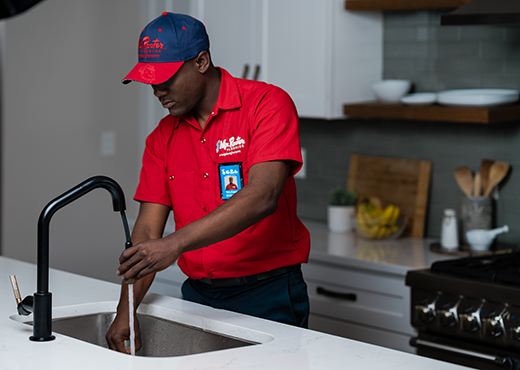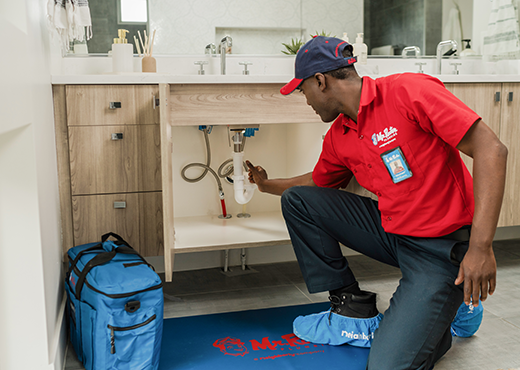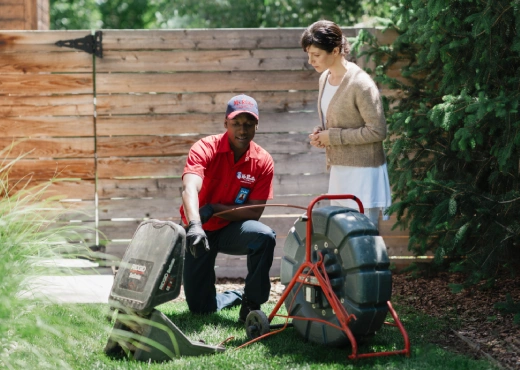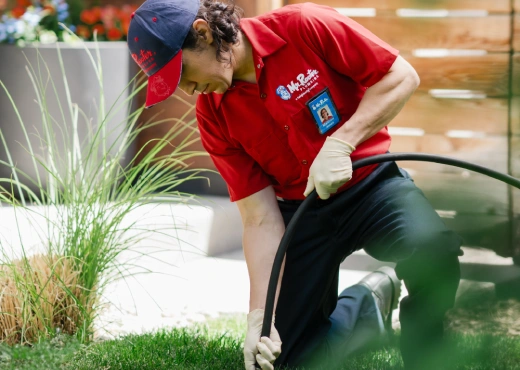A water heater is a modern marvel many of us take for granted. The instantaneous access to warm running water is convenient for bathing, doing laundry, and cooking. What are you supposed to do when you wake up one day, and your water heater isn’t working as it should? Water heaters are complex appliances that are difficult for the average person to fix. That’s why you need assistance from the area’s top water heater repair team. Mr. Rooter Plumbing of berkshire-county offers water heater repairs in Adams, Massachusetts. Learn more about our residential water heater repair and replacement services.

How Many Years Should a Water Heater Last?
Most experts will tell you that a water heater should last between 11 and 20 years. This is true, but it may not be the case with all water heaters. Many factors contribute to a water heater’s lifespan, like usage and regularity of maintenance. If you want to avoid water heater replacement, the best way to do it is to have your water heater checked and serviced by a team of service professionals. Mr. Rooter Plumbing of Berkshire-county can inspect your water heater and perform any necessary plumbing repairs on the spot.
Can a New Water Heater Really Save Me Money?
If you want to reduce the amount of energy consumed by your water heater each month, the best way to do that is by installing a new water heater. Most new water heaters are more energy efficient than models made even five or 10 years ago. If you find your water heater breaking down frequently, you could save money on water heater repair costs by installing a newer model too. If you are considering a water heater upgrade, you should look into the following types of water heaters:
- Conventional Water Heater – Traditional water heaters store water in a tank where it is heated and held until you need it. Tank size can vary, and the size of the tank will affect the amount of hot water you can use before it runs out. New, energy-efficient models can reduce water heating costs by up to 7%.
- Tankless Water Heaters – Tankless water heaters are compact, making them ideal for tight spaces. They also heat water the instant you need it, meaning you never have to worry about running out of hot water. Best of all, tankless water heaters can reduce your energy costs by up to 30%.
- Hybrid Water Heaters – By combining a water tank from a conventional unit and a heat pump from a tankless water heater, hybrid models are the most efficient water heaters you can find. They can cut your water heater expenses by up to 60%.
Schedule a Water Heater Repair or Replacement Appointment!
When it’s time to repair or replace your water heater, Mr. Rooter Plumbing of berkshire-county is here to make the process as easy as possible. We have installed countless water heaters across Adams, Pittsfield, and Cheshire. We always help you select the right unit and give you upfront pricing ahead of time. The easiest part of the whole process is scheduling your first appointment because we offer a 24/7 appointment scheduling line. Schedule your water heater repair or replacement appointment now!
Residential & Commercial Services
-

Drain Cleaning
Let Mr. Rooter get rid of your kitchen, bathroom, and sewer clogs.Learn More Drain Cleaning -

Plumbing Repairs
Schedule a repair before a small leak becomes a big headache.Learn More Plumbing Repairs -

Sewer Line Repair
Avoid a costly sewer replacement with a sewer line repair.Learn More Sewer Line Repair -

Emergency Plumbing
Emergencies happen, and Mr. Rooter helps solve them quickly.Learn More Emergency Plumbing
Mr. Rooter Plumbing of Berkshire County
Choose the plumbing services team in your area. When it comes to selecting the right team for your commercial or residential plumbing services, Mr. Rooter Plumbing is the right choice.
- Adams
- Ashley Falls
- Becket
- Berkshire
- Cheshire
- Dalton
- Drury
- East Otis
- Glendale
- Great Barrington
- Hinsdale
- Housatonic
- Lanesborough
- Lee
- Lenox
- Lenox Dale
- Mill River
- Monterey
- North Adams
- North Egremont
- Otis
- Pittsfield
- Richmond
- Sandisfield
- Savoy
- Sheffield
- South Egremont
- South Lee
- Southfield
- Stockbridge
- Tyringham
- West Stockbridge
- Williamstown
- Windsor
Services We Provide
Let Us Call You

Join Our Team
Plumbing isn’t just about leaks, pipes, and gaskets - it’s about people. Mr. Rooter Plumbing franchisees offer you a career path for growth, and will treat you with the same respect and integrity that they treat their own friends and family, because at the end of the day, you can’t serve customers well without a happy, motivated, and committed team. Creating a culture with an exemplary work ethic is just as important as plumbing, and it’s part of everything Mr. Rooter Plumbing does.
